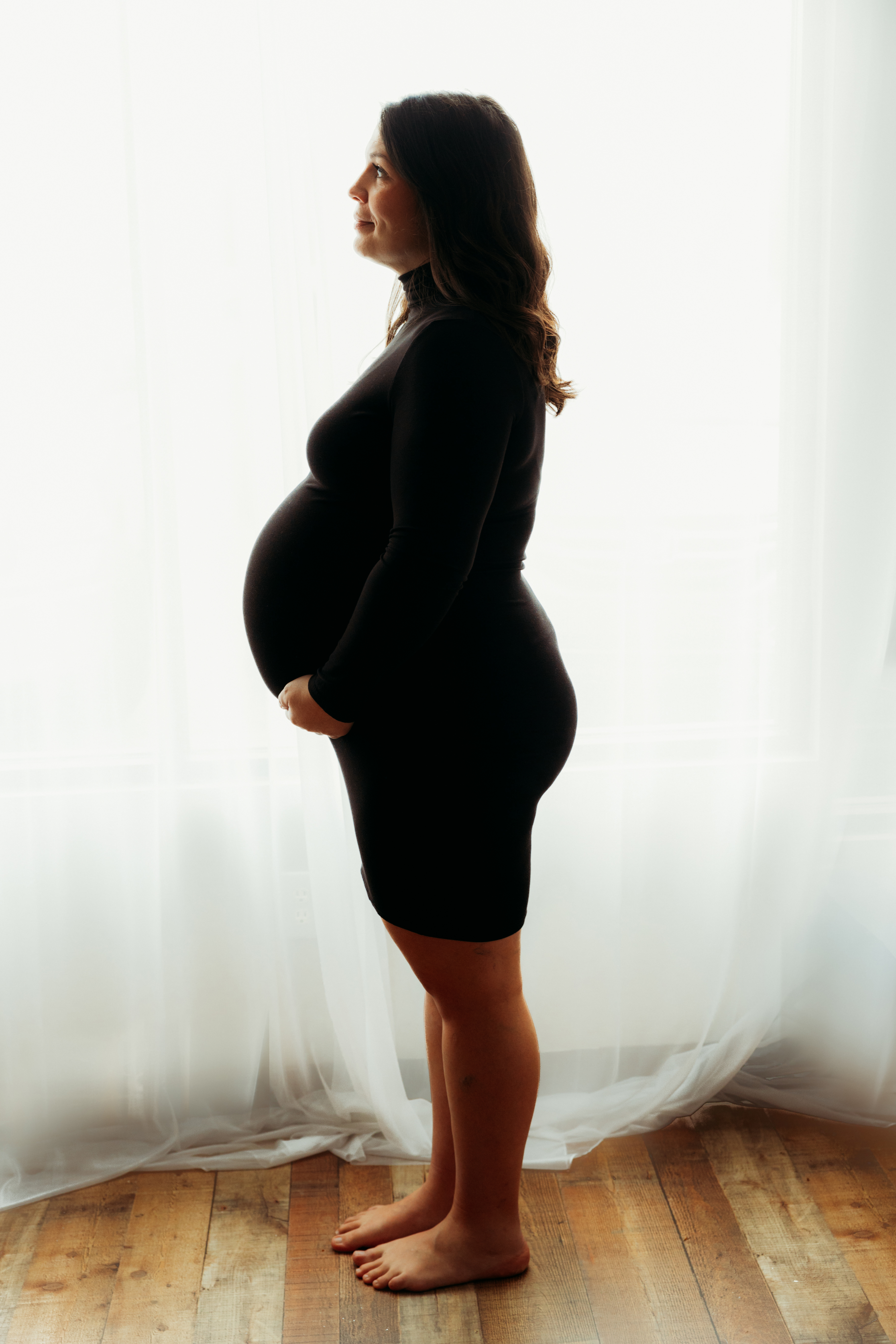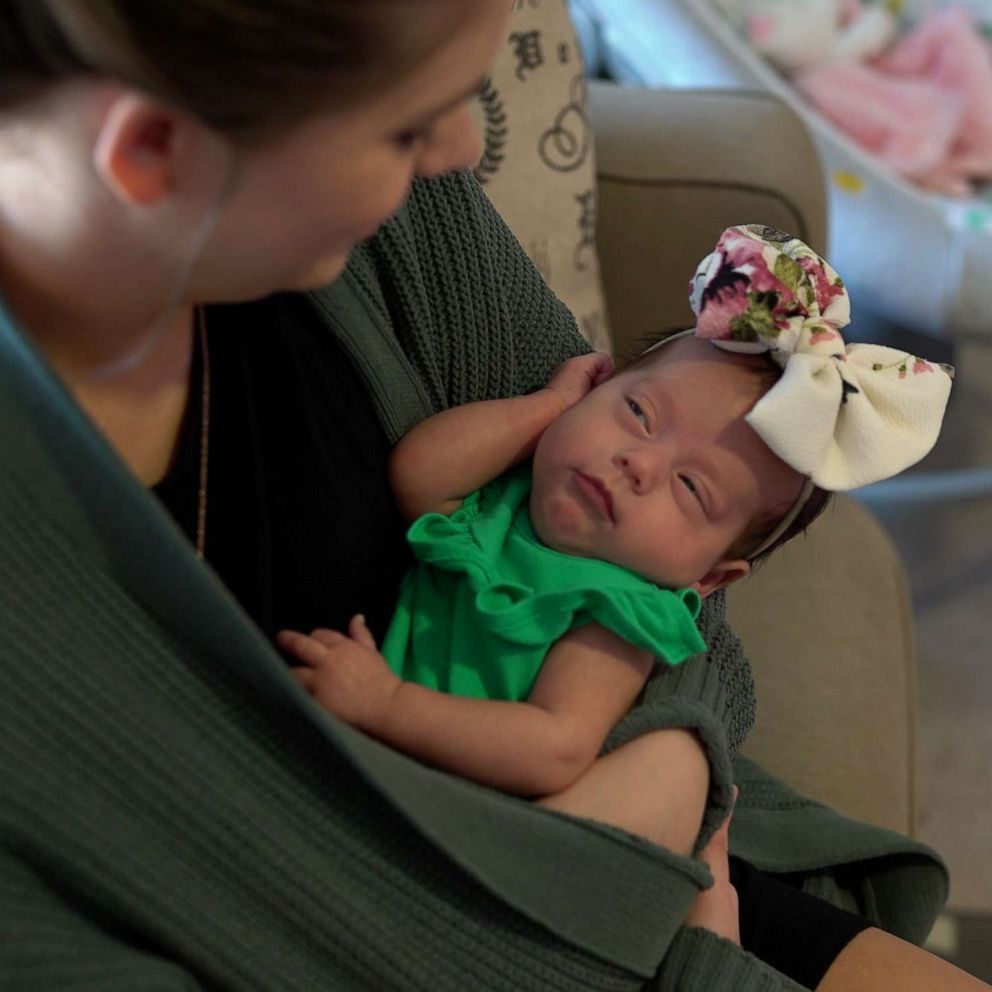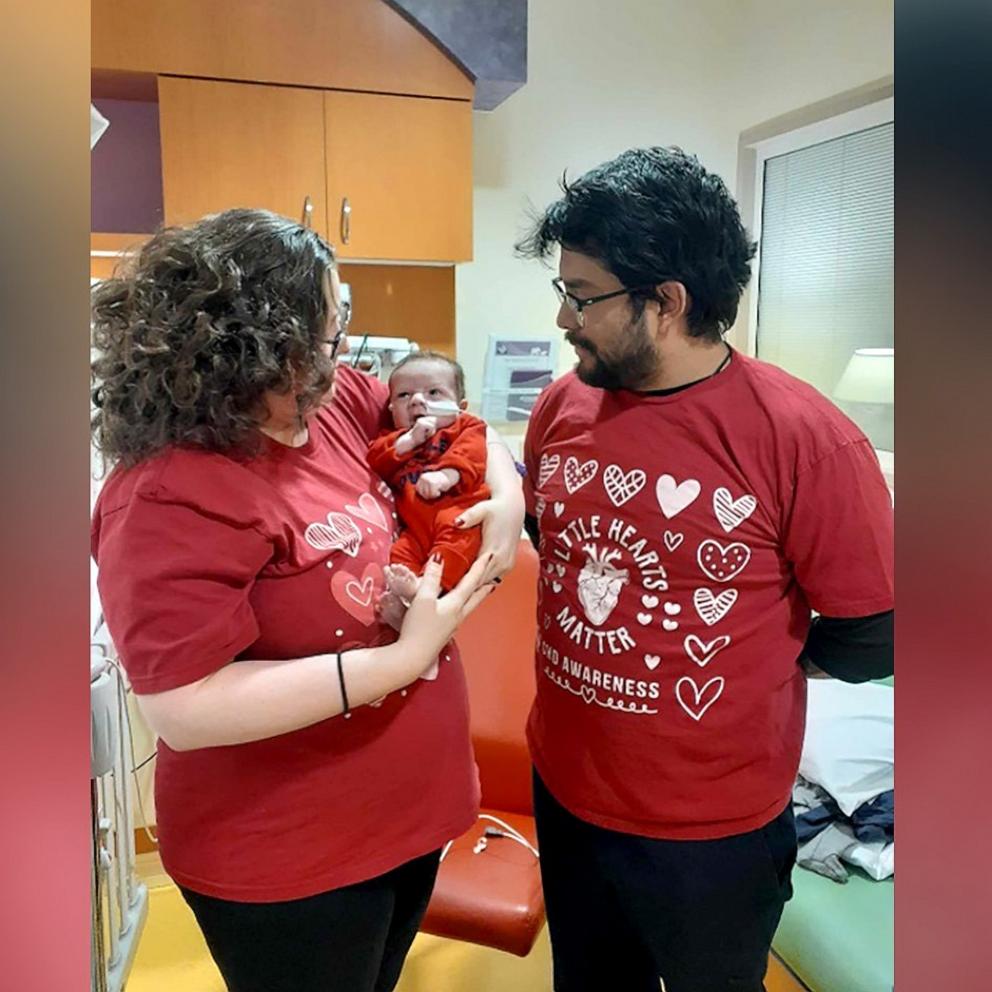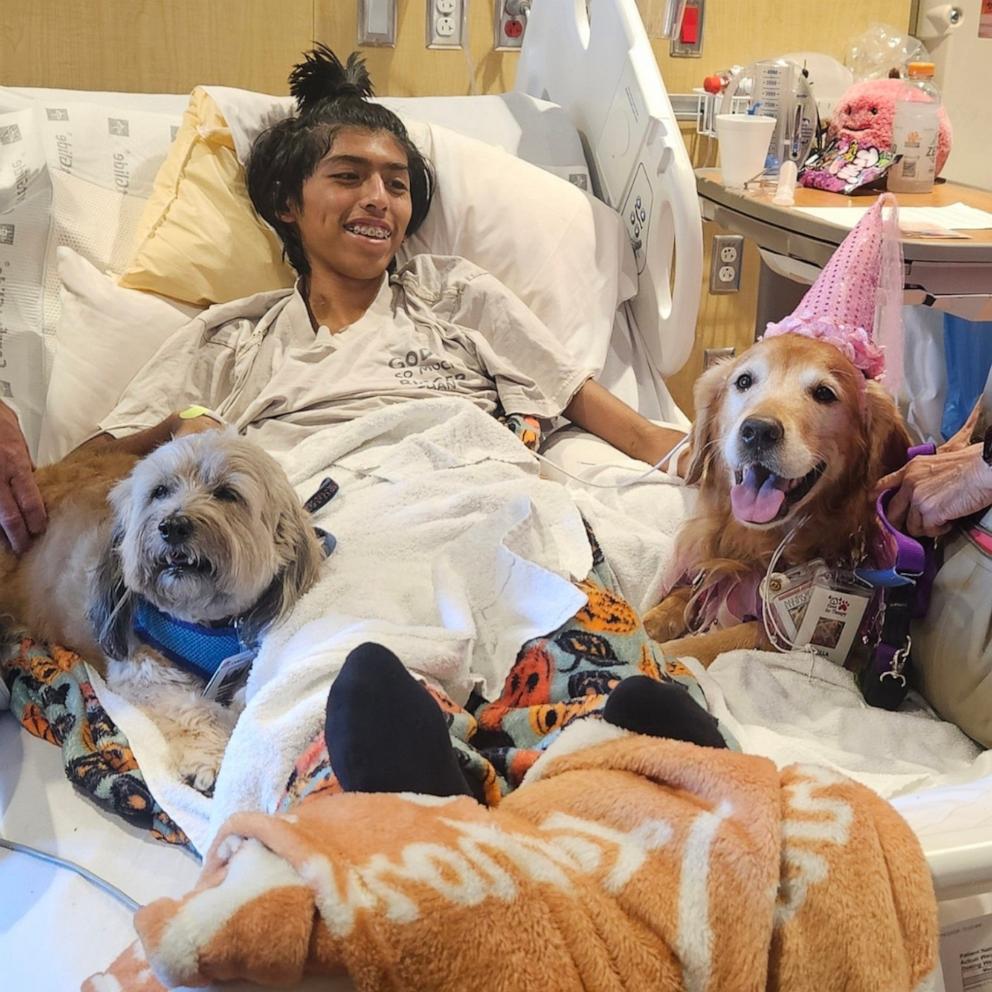Mom with rare double uterus describes giving birth to twin girls on 2 different days
A woman who was born with a rare condition known as double uterus is speaking out after giving birth to twin girls, whom she carried in each of her uteruses during her pregnancy.
Kelsey Hatcher of Dora, Alabama, delivered her daughters Roxi and Rebel on two separate days in December, over a span of 20 hours of labor.
"Roxi [was born] and everybody cheered, and it was like, 'Oh, my gosh, we did it,' and then the reality [set in] of like, 'OK, we have to prepare for the next one,'" she told "Good Morning America," adding that Rebel took a little longer to arrive. "She was not quite ready yet, so it took about 10 hours in between the two."
While Roxi was delivered vaginally at 7:45 p.m. on Dec. 19, Rebel was delivered via cesarean section on Dec. 20, at 6:10 a.m.
Both girls were born healthy, according to Hatcher, with Roxi weighing 7 pounds, 7 ounces at birth, and Rebel weighing 7 pounds, 3.5 ounces.

Hatcher, now a mom of five, said it is "fitting" that her twin daughters, who are fraternal, each have their own birthday.
"They each had their own home while growing, and so now they each have their own birthday," she said.
Hatcher was born with two uteruses and two cervixes, a rare condition also known as uterine didelphys, or double uterus. The condition, present in only 0.3% of people with uteruses, develops when the reproductive organs form differently in an embryo.
People with double uteruses can experience pain, fertility issues, or sometimes no symptoms at all.

The odds of being pregnant at the same time in each uterus are about "1 in a million," according to Dr. Richard Davis, a maternal and fetal medicine specialist at the University of Alabama at Birmingham's Women & Infants Center, where Hatcher was treated during her pregnancy and delivery.
According to both Davis and Dr. Shweta Patel, the OB-GYN who cared for Kelsey Hatcher, the two babies are considered fraternal twins.
"There are lots of different types of twin pregnancies out there," Patel previously told "GMA," adding of Hatcher's specific case, "Most likely what happened is that she ovulated separately and had one egg come down each fallopian tube, meaning coming down on each side of the uterus, and then sperm traveled up on each separate uterus and fertilization occurred separately."
Hatcher said she learned she had a double uterus at age 17, but with each of her three previous pregnancies, she had a single baby carried in one uterus.
She said each of her pregnancies with her kids -- now ages 7, 4, and 23 months -- also went full-term, with no complications.

Hatcher's original due date with her twin pregnancy was Dec. 25 -- Christmas Day.
When she was induced prior to her due date, the team at UAB, led by Davis and Patel, jumped into action, executing a delivery for which they had spent months coordinating. Neither of the doctors, nor anyone else at the university's medical center, has ever cared for a patient carrying two pregnancies in two uteruses.
"As my contractions began, they were not consistently together but were within a few seconds of each other," Hatcher said of what she experienced during labor, according to UAB. "I felt each side contracting in different areas as well. I felt one consistent with the monitor that started on the left side and moved to the right."
As they start off 2024 as a family of seven, Hatcher and her husband Caleb said they are already seeing a special bond between their twin daughters.
"They like to cry together," Caleb Hatcher told "GMA."
"I'm curious to see as they grow, if they'll keep that little bond," added Kelsey Hatcher.







